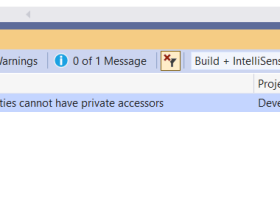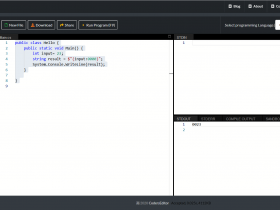.First() throws Error in LINQ or Entity Framework Queries
I use .First() method in some of the Entity Framework LINQ queries to return only one record . This works perfectly similar to the select Top 1 statemnent in SQL.
Eg :
var data = (from m in Employees where m.Name == "Senthil" select m).First()
But , there is an issue with this . Assume your LINQ Query does not contain any Records or the SQL Statement ( TOP 1 ) does not return any records . What would happen ??
I initially thought that it might return NULL or Nothing , but it doesn’t .
When there is no record in the query result and the .First() is used , it throws an error stating “Invalid Operation Exception : sequence contains no elements” . Not an Impressive solution . 🙁
Here comes another method that handy in this case ,Its called FirstOrDefault() which returns NULL if there is no records in the result . The FirstOrDefault() will return the default value for the requested type .
var data = (from m in Employees where m.Name == "Senthil" select m).FirstOrDefault();
So beware when using .First() or .Last() , since you can use .FirstOrDefault() or .LastOrDefault() instead .
Also check what is Supported and what is not Supported in Entity Framework when using First or Last funtion in one my earlier posts .





Amazing job. I am going to want a decent amount of time to toy with your content..
It is not completely accurate to say that FirstOrDefault() “returns NULL if there is no records in the result”. It actually returns the _default_ value of the resultset if there are no records in the result. If the resultset selected an integer field (value type), rather than the whole entity (reference type), the returned value would be 0.